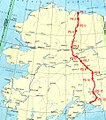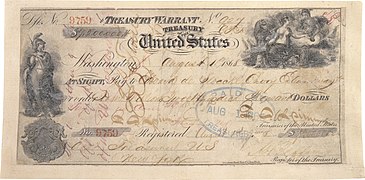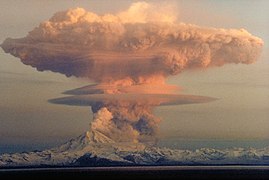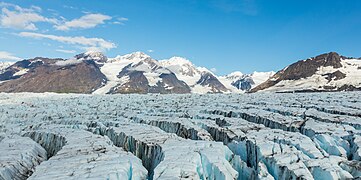Portal:Alaska
 Introduction   Alaska (/əˈlæskə/ ⓘ ə-LASS-kə) is a non-contiguous U.S. state on the northwest extremity of North America. Part of the Western United States region, it is one of the two non-contiguous U.S. states, alongside Hawaii. Alaska is also considered to be the northernmost, westernmost, and easternmost (the Aleutian Islands cross the 180th meridian into the eastern hemisphere) state in the United States. It borders the Canadian territory of Yukon and the province of British Columbia to the east. It shares a western maritime border, in the Bering Strait, with Russia's Chukotka Autonomous Okrug. The Chukchi and Beaufort Seas of the Arctic Ocean lie to the north, and the Pacific Ocean lies to the south. Technically, it is a semi-exclave of the U.S., and is the largest exclave in the world. Alaska is the largest U.S. state by area, comprising more total area than the following three largest states of Texas, California, and Montana combined, and is the seventh-largest subnational division in the world. It is the third-least populous and most sparsely populated U.S. state; however, with a population of 740,133 as of 2024, it is the most populous territory in North America located mostly north of the 60th parallel, with more than quadruple the combined populations of Northern Canada and Greenland. The state contains the four largest cities in the United States by area, including the state capital of Juneau. The state's most populous city is Anchorage, and approximately half of Alaska's residents live within its metropolitan area. Indigenous people have lived in Alaska for thousands of years, and it is widely believed that the region served as the entry point for the initial settlement of North America by way of the Bering land bridge. The Russian Empire was the first to actively colonize the area beginning in the 18th century, eventually establishing Russian America, which spanned most of the current state and promoted and maintained a native Alaskan Creole population. The expense and logistical difficulty of maintaining this distant possession prompted its sale to the U.S. in 1867 for US$7.2 million (equivalent to $157 million in 2023). The area went through several administrative changes before becoming organized as a territory on May 11, 1912. It was admitted as the 49th state of the U.S. on January 3, 1959. Abundant natural resources have enabled Alaska— with one of the smallest state economies—to have one of the highest per capita incomes, with commercial fishing, and the extraction of natural gas and oil, dominating Alaska's economy. U.S. Armed Forces bases and tourism also contribute to the economy; more than half of the state is federally-owned land containing national forests, national parks, and wildlife refuges. It is among the most irreligious states and one of the first to legalize recreational marijuana. The Indigenous population of Alaska is proportionally the second highest of any U.S. state, at over 15 percent, after only Hawaii. (Full article...) Entries here consist of Good and Featured articles, which meet a core set of high editorial standards.
 The Alaska Mental Health Enabling Act of 1956 (Public Law 84-830) was an Act of Congress passed to improve mental health care in the United States territory of Alaska. It became the focus of a major political controversy after opponents nicknamed it the "Siberia Bill" and denounced it as being part of a communist plot to hospitalize and brainwash Americans. Campaigners asserted that it was part of an international Jewish, Roman Catholic or psychiatric conspiracy intended to establish United Nations-run concentration camps in the United States. The legislation in its original form was sponsored by the Democratic Party, but after it ran into opposition, it was rescued by the conservative Republican Senator Barry Goldwater. Under Goldwater's sponsorship, a version of the legislation without the commitment provisions that were the target of intense opposition from a variety of far-right, anti-Communist and fringe religious groups was passed by the United States Senate. The controversy still plays a prominent role in the Church of Scientology's account of its campaign against psychiatry. The Act succeeded in its initial aim of establishing a mental health care system for Alaska, funded by income from lands allocated to a mental health trust. However, during the 1970s and early 1980s, Alaskan politicians systematically stripped the trust of its lands, transferring the most valuable land to private individuals and state agencies. The asset stripping was eventually ruled to be illegal following several years of litigation, and a reconstituted mental health trust was established in the mid-1980s. (Full article...) TopicsCategoriesSelected article -Ice Road Truckers (commercially abbreviated IRT) is a reality television series that aired on History Channel from 2007 to 2017. It featured the activities of drivers who operated trucks on ice roads crossing frozen lakes and rivers, in remote territories in Canada and the U.S. state of Alaska. Seasons three to six also featured Alaska's improved but still remote Dalton Highway, which is mainly snow-covered solid ground. (Full article...) Selected picture -General imagesThe following are images from various Alaska-related articles on Wikipedia.
Recognized content
Featured articlesGood articles
Featured pictures
Former featured pictures
Related Portals
Related WikiProjectsState facts
State symbols:
Tasks
Associated WikimediaThe following Wikimedia Foundation sister projects provide more on this subject:
Discover Wikipedia using portals |































































